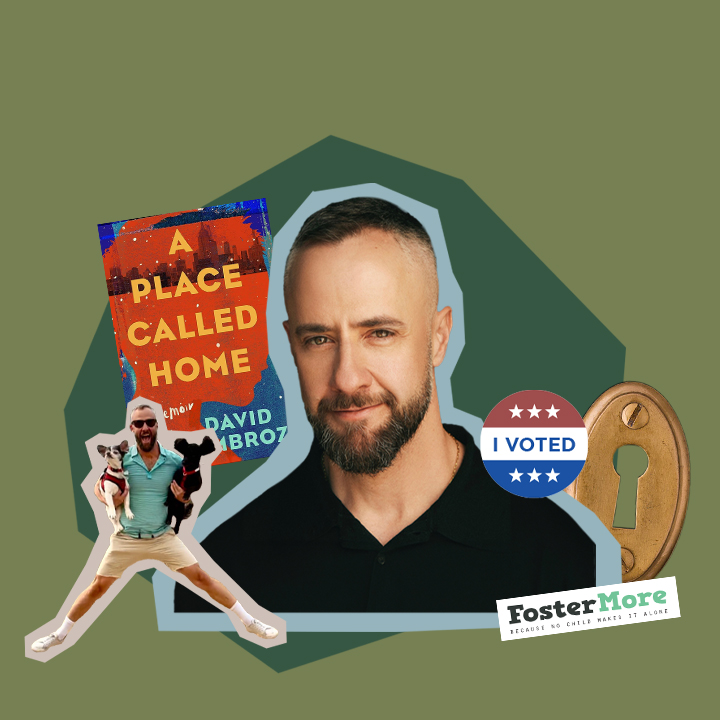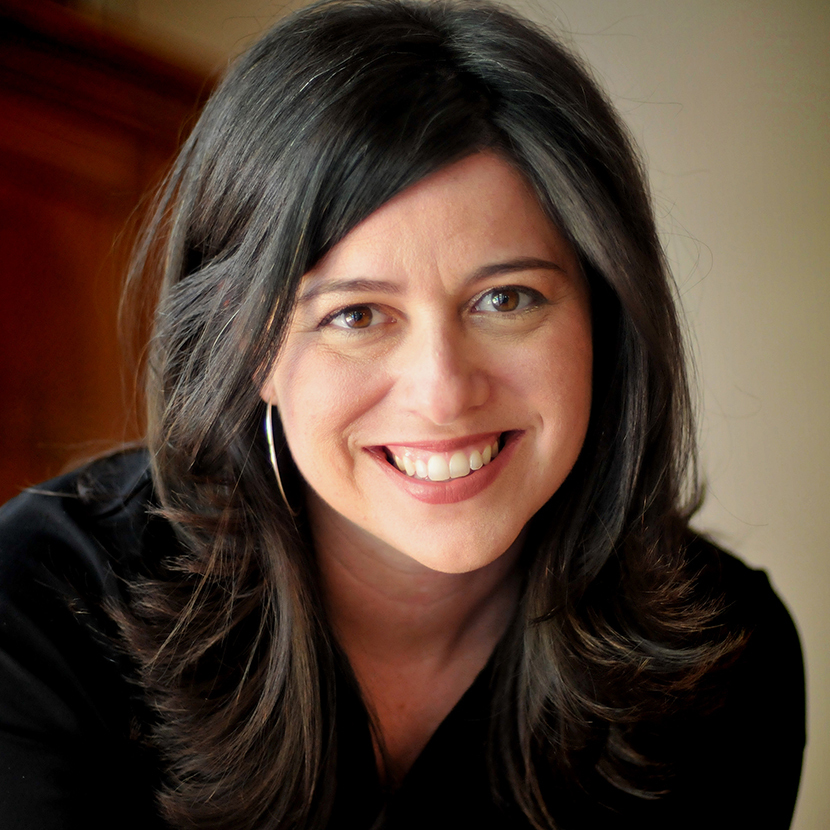Ten years ago, Brené started the Daring Interview series on her blog. It quickly became one of our favorite features. Now, we are relaunching the series and adding in a few new questions, including some from the late James Lipton, host of Inside the Actors Studio, and Smith Magazine’s Six-Word Memoir.
David Ambroz opens his memoir, A Place Called Home, on Christmas Eve 1985. He’s 5 years old, starving, cold, and covered with lice, stumbling past the glowing store windows of New York City. If he stops walking, he’ll freeze to death. His shoes are too large and too wet, but he keeps moving his numb feet forward and focusing on how to keep up with his mentally ill mother as they meander toward somewhere to sleep that night.
Poverty and homelessness are haunting, even more especially when seen through the eyes of a child. The casual cruelty. The dismissive reactions. The repeated abuse. The continued disappointment of being failed by the systems created to help. Discouraged again and again, but resilient to the end, David is one of those souls who lived to share his story, who stormed through his adolescence and found hope and opportunities at school and in libraries. He survived, and, like that little boy in the opening pages of A Place Called Home, he kept going.
David graduated from Vassar and then from UCLA School of Law. He co-founded fostermore.org, an organization that helps to radically change the perceptions of the foster care system. Now a high-level executive at a multinational company, David is a foster dad himself. His memoir is one of the best I’ve ever read, and I’m so thankful that he was brave enough to share his story with us.
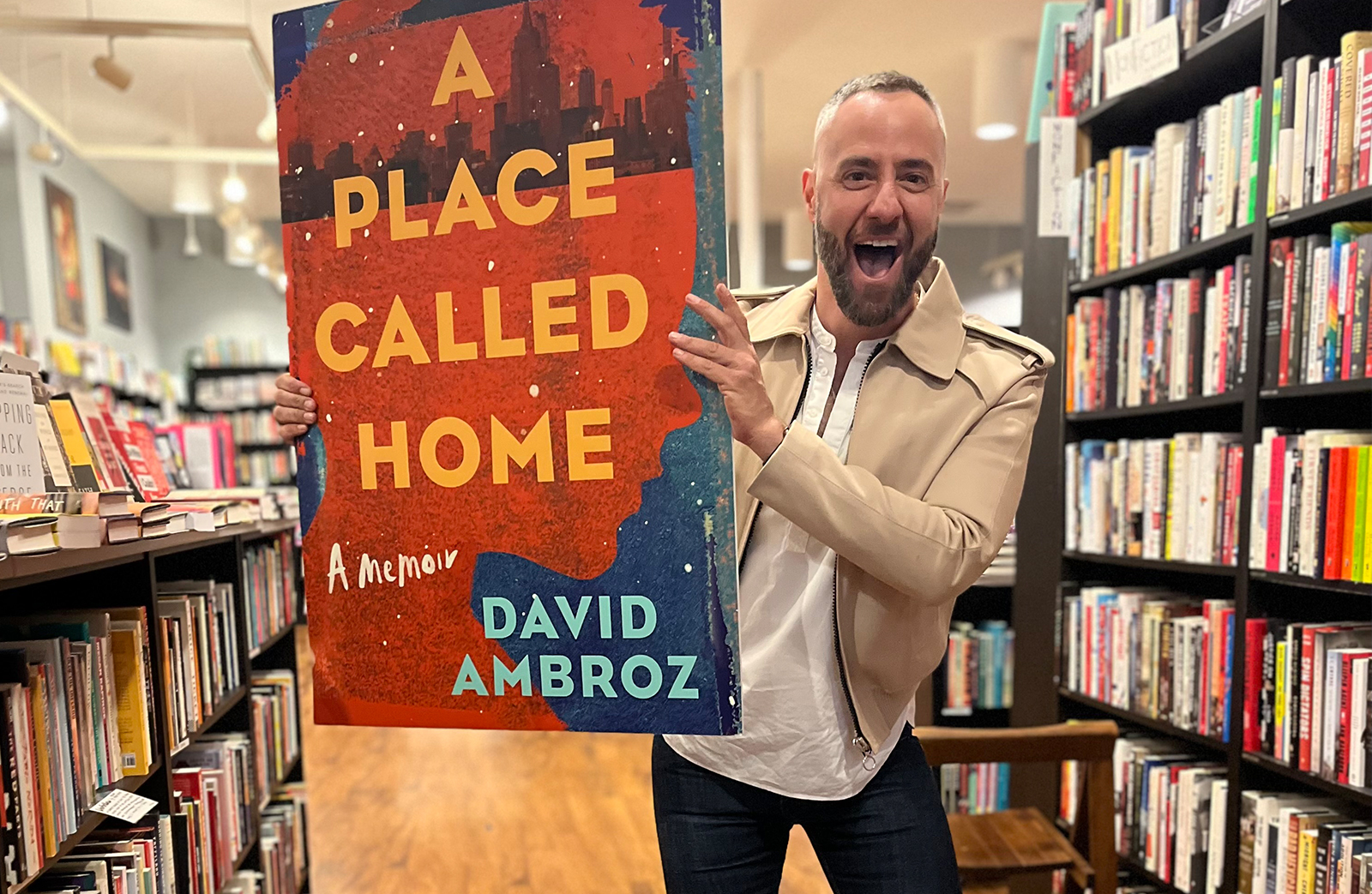
Vulnerability is . . .
Beautiful. Vulnerability is power. Vulnerability is a practice, like yoga, that requires a disciplined approach. We must individually overcome the tendency to project “strength” when that strength is in fact a facade. Vulnerability is a superpower, not a weakness.
What role does vulnerability play in your work?
Vulnerability is the protagonist in my story, having suppressed it for too long. Forever, I thought projecting strength was the way to effectuate the most impactful change. Since sharing my full story, I’ve gotten so much farther in opening people’s hearts and minds to care about child poverty, foster care, and other issues. People hunger for authenticity and respond accordingly. It has added gasoline to my fire, creating a brighter flame for others to see through the dark.
I move through fear by looking directly in the face of it and seeing it for what it is — a mirage projected from my own mind.
What’s something that gets in the way of your creativity, and how do you move through it?
Fear. It stalks me, quietly leaning in over my shoulder, whispering, “Are you sure? What will people think?” These and other questions based in fear inhibit, if not destroy, creativity. I move through fear by looking directly in the face of it and seeing it for what it is — a mirage projected from my own mind. I move through fear, powerfully and often.
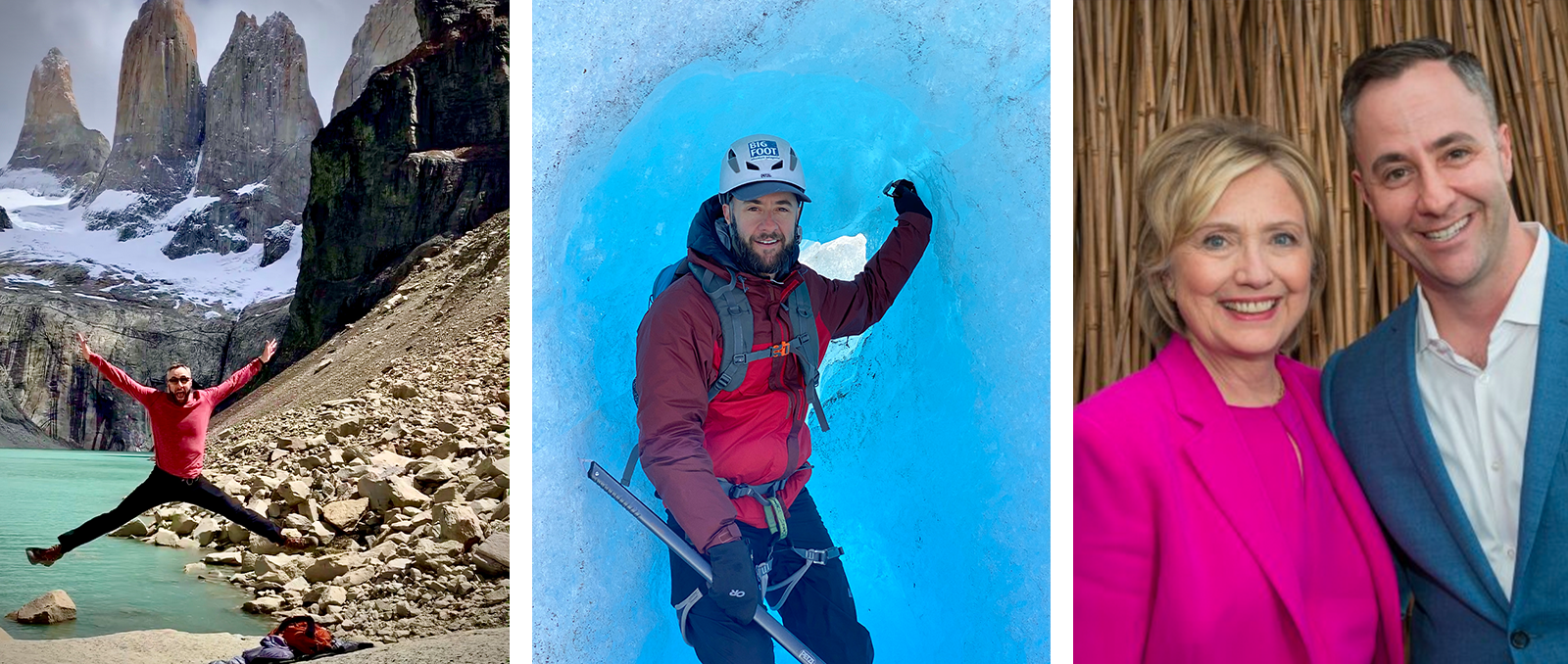
It’s often difficult to share ourselves and our work with the world, given the reflexive criticism and mean-spiritedness that we see in our culture — especially online. What strategies do you use to show up, let yourself be seen, share your work with the world, and deal with criticism?
Having survived 12 years homeless, starving and abused — then further abuse in foster care — I refuse to dim my light for anyone. I fought to have this flame burn brightly, and I will not dim because a minority of bystanders insist on sharing their hate. Like waves on a beach, it washes off of me — meaningless.
Describe a snapshot of a joyful moment in your life.
Despite 12 years of violence, I am my mother’s guardian. Visiting with her, I found she had unkempt hair and her nails were asunder. I brushed her hair, looking deep into her hazel eyes. I then filed, smoothed, and painted her nails. Her skin was translucent and freckled and so soft. I held the hands and loved her and also noted that these same hands hurt me so deeply so many times. My mother taught me to forgive from an early age — it was a hard lesson. She still teaches me.
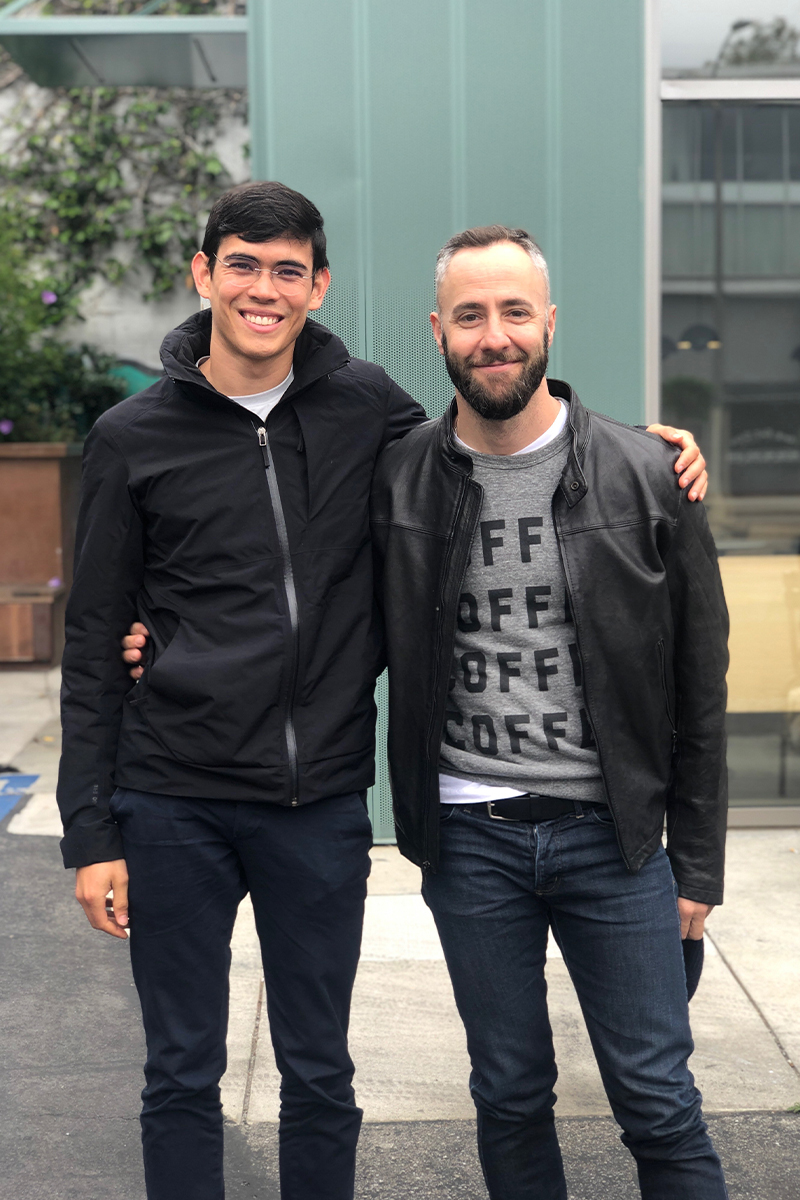
“I am a proud foster father,” David says. He’s pictured here with his foster son, Vincent; photography courtesy of David Ambroz.
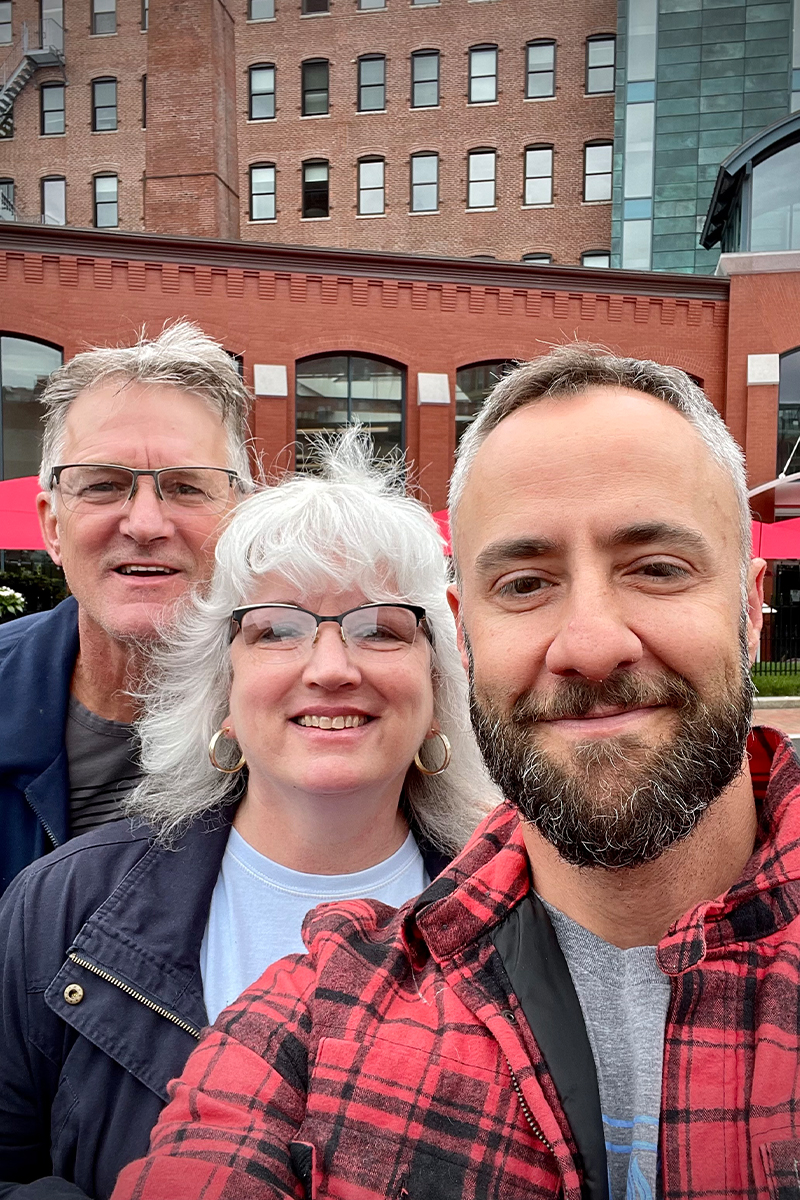
David with his foster parents, Holly and Steven; photography courtesy of David Ambroz.
Do you have a mantra, manifesto, or favorite quote for living and loving with your whole heart?
Illegitimi non carborundum: “Don’t let the bastards grind you down.” The “bastards” are not always people — it’s fear, processes, any challenge.
What is your favorite word?
Yes. It is the only word that unleashes adventure and unlocks my future.
What is your least-favorite word?
Cynicism. It speaks of giving up on something worthy and pretending to be fashionable because you see it as impossible. Too often we are cynical about the very issues we need to lean in on to achieve real impact.
I fought to have this flame burn brightly, and I will not dim because a minority of bystanders insist on sharing their hate.
What sound or noise do you love?
Silence. In that quiet, I can think-hear my own thoughts — and breathe.
What sound or noise do you hate?
Complaining. My reaction is always, Do something about it.
What is your favorite curse word?
Impossible should be a four-letter world. Other than the laws of physics, everything else is a choice.
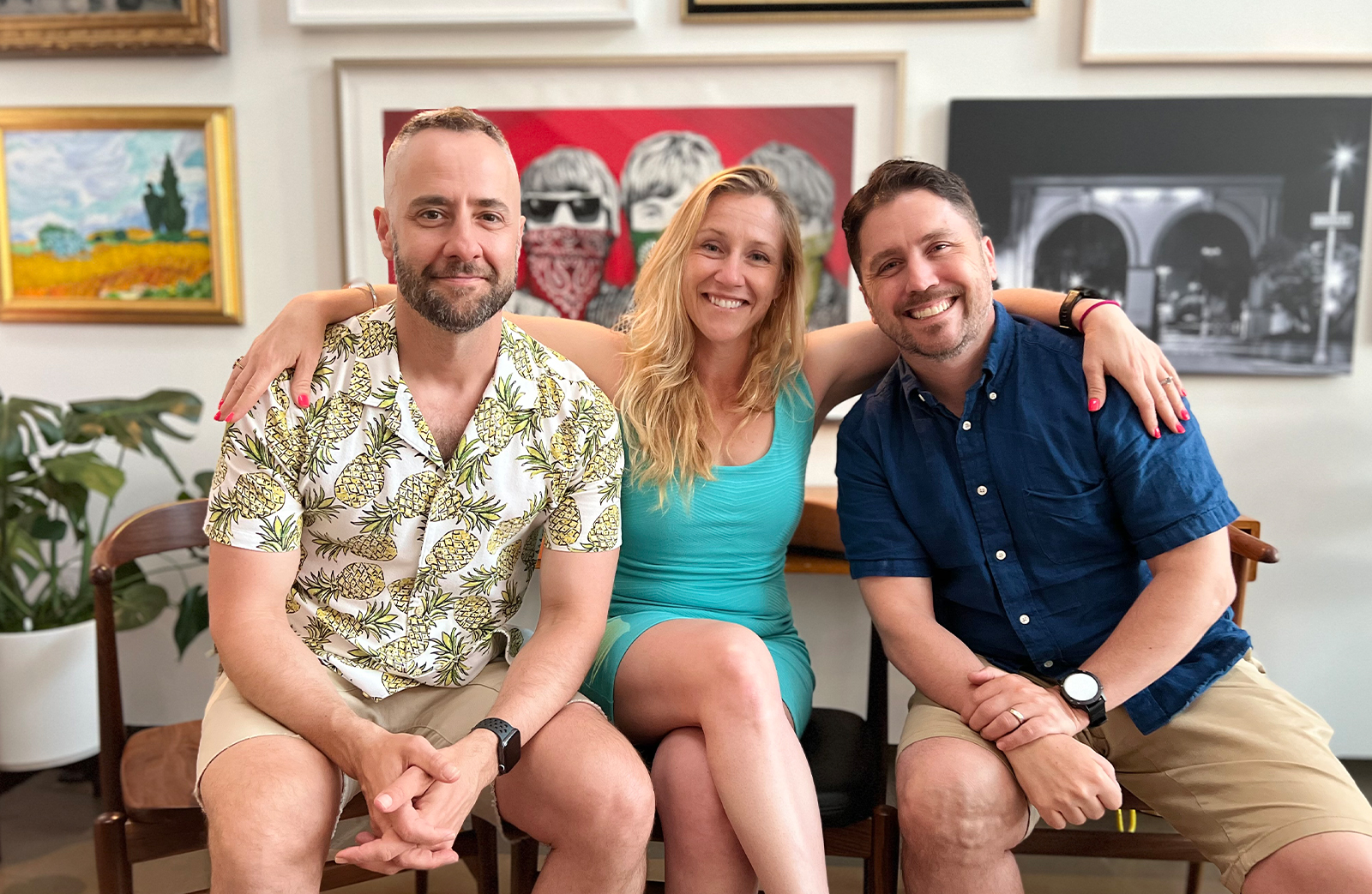
A song/band/type of music you’d risk wreck and injury to turn off when it comes on?
Nothing. Love or at least am curious about it all.
Favorite show on television?
Sex and the City — of all time. Currently, And Just Like That. You see the theme.
Favorite movie?
Empire of the Sun.
What are you grateful for today?
Today, I walked down the stairs in my home already burdened by all that I had to accomplish that day. An impossible to-do list that saddled me with anxiety and angst. At the base of the stairs, I paused and looked up — I live in a loft with tall ceilings and a wall of windows. I looked up, placed my hand on the wall on my right, and said to myself, “David, you own your home.” For a person who began life homeless for 12 years, I am constantly having to remind myself to be grateful for all that I have earned and give myself the grace of moments of gratitude and self-love.
We must individually overcome the tendency to project “strength” when that strength is in fact a facade.
If you could have anything put on a T-shirt, what would it be?
Nothing. Let’s remember and appreciate the beauty of simplicity.
Favorite meal?
Indian. Champagne. Cheesecake.
A talent you wish you had?
Piano.
Favorite song/band?
Madonna, always and forever. Postal Service, a solid second.
What’s on your nightstand?
David Whyte’s Consolations and Lonely Planet’s Guide to the Pacific Coast Trail.
What’s something about you that would surprise us?
I’m an open book.
Your six-word memoir . . .
It’ll only hurt for a minute.
Vulnerability is the protagonist in my story, having suppressed it for too long.
